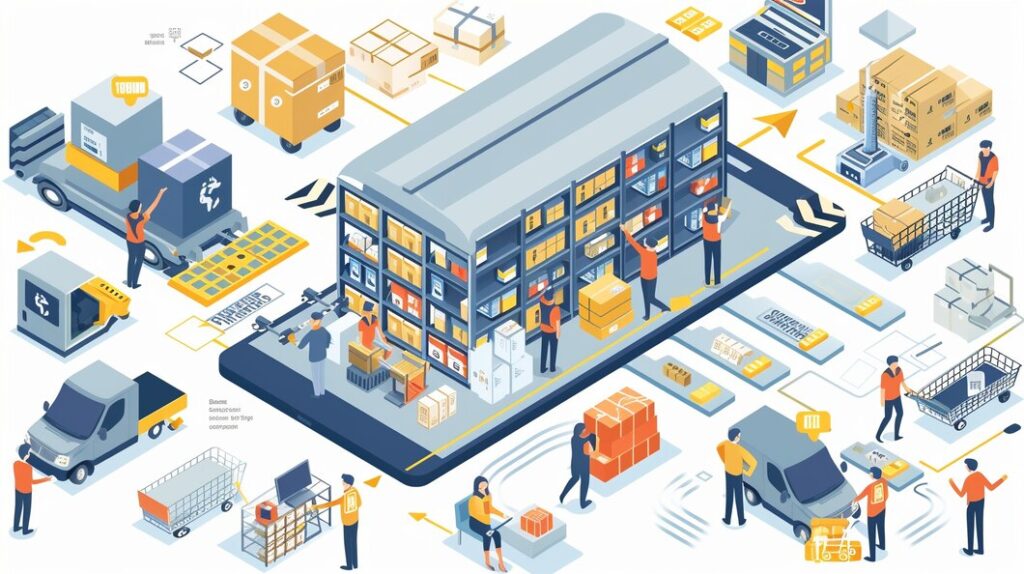The world is a global village, and this ecosystem has successfully unleashed a new horizon of business opportunities. With the generation of new demands, the e-commerce industry has dived into the seas to cater to customers’ requirements. However, this involves many complex strategies, which are much easier to say than implement.
Again, the spirit and urge to meet the consumer’s demands have enabled the eCommerce sector to use the shipping industry best as millions of people are placing orders online. So, to go with the flow, the e-commerce stakeholders are making the best use of technology to evade the hurdle of the logistics network. However, in this section, we discuss some of the impacts of eCommerce on the shipping industry.
The Impact Of E-Commerce On The Shipping Industry
Like many other industries, the buying and selling of goods has undergone quite a substantial transformation. Thanks to digitization, consignments are making it easy to buy and sell online.
With global internet usage rising to over 5 billion internet users worldwide, the e-commerce sector has shifted massively and has attained an expanse. However, according to a retail e-commerce sales report projected by Statista, one expects that the industry will reach US$6.3 trillion worldwide.
But do you think that digitization is the only reason behind the eCommerce sector’s growth? No, the change that has taken place in the retail industry can be attributed to the shipping industry. Yes, you got it right. The article discusses the connection, which is the e-commerce logistics industry.
Related: Seller’s Perspective On The Multivendor E-Commerce Platforms
Enhanced Logistics Services
As the data shows, there has been increased demand for reliable e-commerce. However, the logistics industry is investing in its existing infrastructure to update its capacity by embracing new technology. This has led to the automation of its services and delivery centers, which has reduced human involvement in the e-commerce logistics industry. So, in one way, the change was inevitable and quite pronounced.
Supply Chain Optimization And Innovation
The influence of e-commerce goes way beyond delivery speed. It has played a catalyst in redesigning supply chain optimization. The business organization leverages new technology like data analytics and machine learning to forecast demand accurately. Not only this but managing the inventory has also paved the way for more efficient transportation.
Environment Concerns And Sustainability

While discussing the e-commerce logistics industry, the impact of E-commerce on global freight and logistics has revolutionized convenience.
However, the logistics sector is exploring new, eco-friendly initiatives, such as electric vehicle-optimized route planning. The stakeholders intend to mitigate its carbon footprint and embrace sustainability. This is how massively the e-commerce sector is impacting the activities and flow of the shipping industry because the game is all about serving the needs of customers.
Globalization And Market Expansion
The e-commerce market has obliterated all the geographical barriers. Therefore, it enabled businesses of different sizes to access Internet markets easily.
Again, according to its requirements, globalization has spread its wings to new destinations. It has necessitated robust logistic networks. It has its own expertise, exploiting the benefits of cross-border shipping and international shipping and complying with international trade norms. Ultimately, it has benefited the entire industry.
Related: The Art And Legacy Of The Japanese Katana
Accommodating Newer Transport
Transcontinental trade can take place via roads and rails, although border trades need to adopt different means. For this to happen, the shipments are carried through air.
However, it impacts maritime transport, with larger ships carrying costlier shipments internationally. Therefore, stakeholders directly and indirectly related to the e-commerce industry must look for new ways to manage costs and simultaneously satisfy customers’ needs and requirements.
Increased Job Opportunities
The e-commerce logistics industry, with its growth and development, has increased job opportunities. It is one of the areas on which the stakeholders must focus.
The impact of automation has reached the very root of e-commerce. However, at the same time, there is a demand for skilled laborers to operate technology-driven applications. Consequently, the supply chain, which includes the logistics sector, has become quite significant globally. However, with increasing demand, the industry requires a robust workforce.
Multi Warehousing
For business reasons, e-commerce players need to store goods in bulk so that they can meet consumers’ requirements. However, the shipped inventory is segregated and thereafter scattered across diverse warehouses across the country. This is where the development becomes quite important from the point of view of enriching the trading experience.
Conclusion: E-Commerce Logistics Industry Future
Navigating the eCommerce landscape is filled with its own challenges. However, there are supply chain disruptions.
Notwithstanding the many issues surrounding the e-commerce zone, there are challenges galore, and the stakeholders must look for information to find themselves in a safe zone. However, e-commerce is doing it all to ensure that it has a strong impact on the shipping industry. However, the industry could achieve the best performance with the right strategies.




